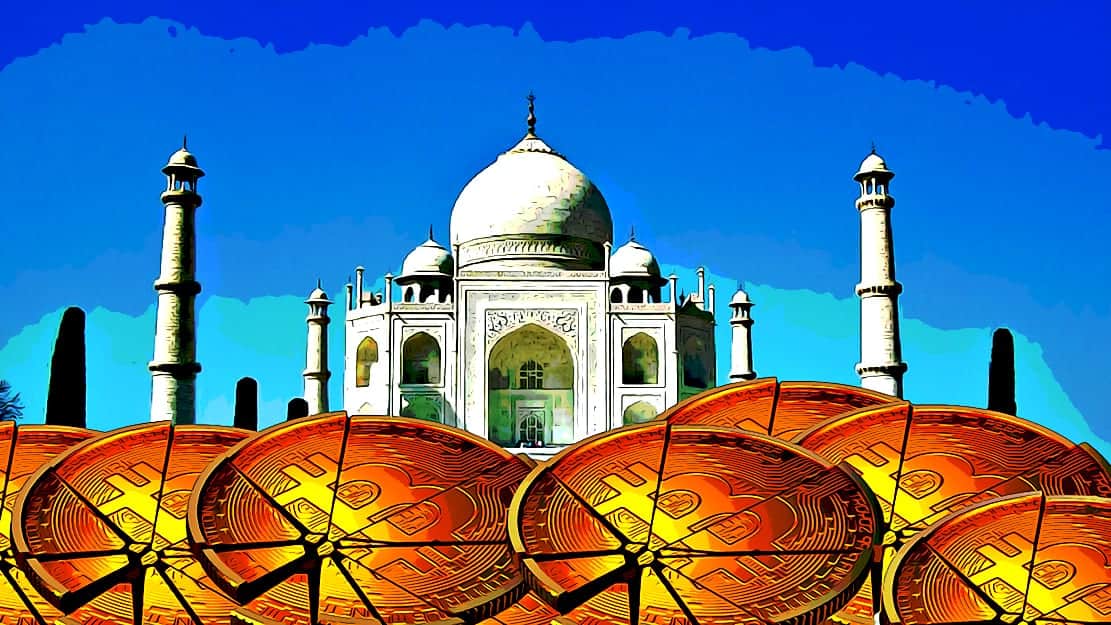Elon Musk made it official: Bitcoin is real and here to stay. The mega-entrepreneur drew worldwide attention with the announcement that his flagship company, electric car maker Tesla, had acquired US$1.5 billion in bitcoin. Even though bitcoin has been around 12 years and thousands of other cryptocurrencies have appeared since, Musk’s attention-grabbing purchase is a turning point for bitcoin. Such a large, visible acquisition moves bitcoin one step further along the path of legitimacy and everyday use. Today, you can buy a Tesla using bitcoin. Tomorrow, a pizza?
The Tesla bitcoin purchase is the shot heard ‘round the world — the message it sends is reverberating throughout business and financial centers everywhere, including the Reserve Bank of India. Officials there were reportedly taken by surprise by Musk’s move and are asking themselves what they missed about bitcoin all along.

Up to now, it seemed that RBI officials considered bitcoin and cryptos generally to be something of a fad, and nothing that India either needed or wanted. The RBI could basically ignore cryptos altogether or pass a law banning them and that would be that.
Beyond Elon Musk’s endorsement of bitcoin, something else happened to shatter RBI’s complacency: Indian citizens started using bitcoin as a store of value instead of gold. Indians have long used gold as a hedge against currency inflation and unpredictable government policy moves like 2016’s famously inept demonetization of the currency. Four-plus years later, it’s not clear what demonetization accomplished except massive hardship on low wage earners and taking at least a percentage point off the growth rate for the subsequent year. Quixotic moves like that only serve to undermine confidence in the rupee. No wonder Indians trust gold more than the government when it comes to preserving wealth. It also doesn’t hurt that gold looks great when you wear it, goes with anything and is always the right color.
Bitcoin, on the other hand, is out of the government’s reach. It’s self-governed, reliable, limited in supply and easily tradable. It’s also increasing in value fast (at least right now). More and more Indians are catching on that bitcoin might be a good place to preserve value compared to the rupee.
Reading prior press releases and speeches by RBI officials, it’s clear that the RBI has two points in mind when it comes to cryptocurrencies generally:
- Non-government issued cryptos (bitcoin, ethereum or any of the thousands of other cryptos) will never be allowed in India for national security reasons. Period.
- Whatever happens with cryptos in India, the government will regulate it. Heavily
Those two redlines are related of course — the RBI is legitimately concerned about cryptocurrency being used for terrorist financing and money laundering. Given India’s history of terrorist activity, (think Mumbai terror attacks in 2008, Naxalite Maoists in Jharkhand and Andhra Pradesh states), the RBI’s concern is grounded in experience. No one wants to see another tool in the hands of terrorists.
This is not to mention funding garden-variety criminal activity like drug dealing or other more mundane activities. In 2013, the United States’ Federal Bureau of Investigation (FBI) shut down a web site known as Silk Road that was a hub for illegal activities and only allowed bitcoin as a transaction currency. The FBI seized over US$1 billion of bitcoin in the raid.
While bitcoin isn’t totally anonymous — each trade is logged in the blockchain and can be traced, it is very difficult to trace ownership through the elaborate chain of custodians and exchanges. The identifying information is so technical that most central banks or crime fighting organizations lack the technical expertise to do it. From the RBI’s perspective, it’s best to avoid this dilemma altogether by banning cryptocurrency entirely.
The RBI is considering issuing a rupee-based digital currency — call it the digital rupee. In other areas of Indian financial transaction, RBI, together with the Payments Corporation of India have been light years ahead of the rest of the world in creating efficient, large-scale financial transaction systems. India leapfrogged years of development and legacy technology at work in the West by basing new payment systems on the cell phone. It’s worked brilliantly.
But, when it comes to digital currencies, the next frontier of financial innovation and efficiency, RBI’s attitude puts India well behind the curve. China for example, has been working on a digital renminbi for several years and will introduce it soon. Their aim is to make the renminbi a competitor to the U.S. dollar as a world reserve currency.
A digital rupee would speed commerce, making transactions instantaneous, and traceable. That last bit is key for the RBI — full accountability for each side of a financial transfer will be a necessary element of any digital currency. Introducing digital rupees for large scale transactions would increase accountability and decrease costs significantly.
Can India move as effectively into digital currency as it did in payments? That’s unlikely without leadership from the RBI who, at the moment, are trying to find a way to avoid the entire digital currency parade rather than lead it.




